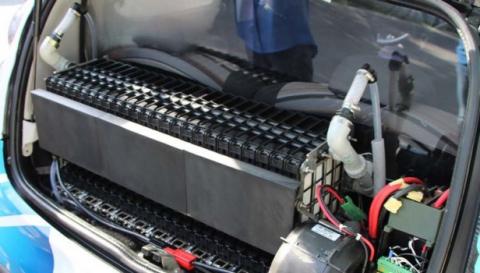Investors throw $50M at Israeli revolutionary electric car battery
The two companies signed a cooperation agreement back in 2013 and have since developed a new heavily-aluminum electric car engine. Both companies have also demonstrated the effectiveness of the aluminum-air battery on a boat at Lake Neuchâtel in Switzerland in 2014. A press release about that demo claims the battery gives the boat an extra 25 hours at sea (30 total) as opposed to a mere five.
Phinergy is not the only company producing zinc-air and aluminum-air batteries — Fuji Pigment claimed last year its Al-air batteries could last two weeks and be refilled with water — but the industry faces some hurdles toward widespread market penetration.
While work on improving aluminum-air batteries slowed in the 1980s, Phinergy asserts its technology makes them a feasible option again. Their approach purports that its air electrodes last far longer, are immune to the carbonization that plagued the chemistry of previous battery models, and uses a silver-based catalyst. One issue that still plagues the aluminum-air battery option is that they aren’t rechargeable, though the aluminum oxide the batteries leave behind can be recycled for new cells.
Alcoa has made other deals in the automotive industry. It has recently started manufacturing lighter-weight aluminum parts to replace heavy steel parts in certain Ford models.
Phinergy was founded in 2008 and employs 40 people. They maintain offices in the Israeli cities of Lod and Kadima. The company was founded by CEO Aviv Tzidon. Others in their management team include CTO Derek Tzidon, COO Jonathan Regev and CFO Hemy Tzubary.
For more information about how their technology works, feel free to watch this video.
Gedalyah Reback

